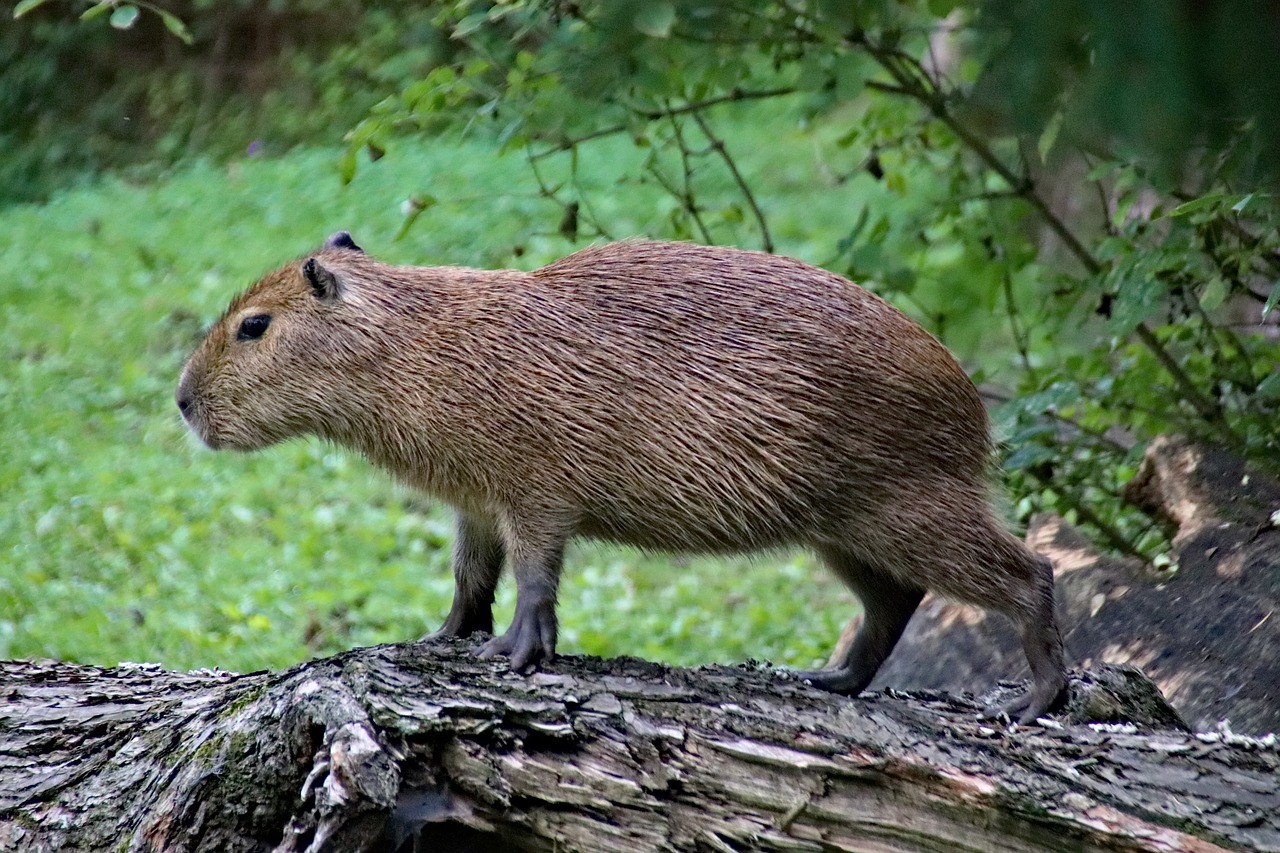Physical Address
304 North Cardinal St.
Dorchester Center, MA 02124
Physical Address
304 North Cardinal St.
Dorchester Center, MA 02124


Capybaras, often referred to as nature’s giants, are fascinating creatures that have captured the hearts of animal enthusiasts around the world. As the largest rodents on Earth, these semi-aquatic mammals are known for their friendly and sociable nature. But, like any wild animal, capybaras have their unique behaviors and can sometimes exhibit defensive or territorial reactions. One common question that arises is, “Do capybaras bite?”
Yes, capybaras can bite, but it’s typically in response to specific situations like feeling threatened, protecting their young, or establishing dominance. They are generally friendly and sociable animals known for their peaceful coexistence with other species. To interact safely with capybaras, maintain a respectful distance, avoid sudden movements, and always respect their boundaries, whether in the wild or in captivity.
But here is much more. In this article, we will explore the behavior of capybaras, their propensity to bite, the reasons behind their actions, and how to interact with them safely.
Capybaras (Hydrochoerus hydrochaeris) are native to South America and are found in countries like Brazil, Venezuela, Colombia, and Argentina. They are herbivorous creatures with a semi-aquatic lifestyle, often inhabiting regions near water bodies such as rivers, lakes, and marshes. Capybaras are famous for their large size, reaching up to 2 feet (0.6 meters) in height and weighing as much as 150 pounds (68 kilograms). Their unique appearance, with a barrel-shaped body, short legs, and a rounded head, makes them instantly recognizable.
Capybaras are known for their sociable behavior and are often found in groups called “herds” or “communities.” These groups can consist of as few as 10 or as many as 30 individuals, depending on factors such as food availability and the local environment. These animals are highly gregarious and enjoy the company of their fellow capybaras.
One of the most endearing aspects of capybara behavior is their inclination to engage in social grooming. They often groom each other by nibbling on the fur, which helps with bonding and maintaining good hygiene. This behavior is a sign of their peaceful and communal nature.
While capybaras are generally considered gentle and docile animals, there are instances where they may bite. However, it’s crucial to understand that capybaras don’t typically bite out of aggression or for no reason. There are specific circumstances and triggers that can lead to a capybara bite, and these are usually related to their natural instincts and behaviors.
Here are some common reasons why capybaras may bite.
Capybaras have been kept as pets in some regions, leading to the question of whether they can be tamed or domesticated. While capybaras are naturally more sociable than many other wild animals, domesticating them is a complex and controversial issue.
Capybaras that are raised from a young age with careful human interaction may become more tolerant of people. They can develop bonds with their human caregivers and may exhibit less aggressive behavior. However, it’s essential to remember that capybaras remain wild animals at heart, and their behavior can still be unpredictable.
Additionally, the legality of keeping capybaras as pets varies by location, and it’s essential to research and understand the laws and regulations in your area before considering one as a pet. Owning a capybara comes with significant responsibilities, including providing proper care, shelter, and socialization.
If you find yourself in a situation where you can interact with capybaras, it’s crucial to do so safely and respectfully. Whether you encounter them in the wild or in captivity, following these guidelines will help ensure a positive and safe interaction.
Capybaras kept in captivity, whether as pets or in controlled environments like zoos, may exhibit different behavior patterns than their wild counterparts. Captive capybaras are often exposed to human interaction from a young age, which can influence their socialization.
In captivity, capybaras may be more tolerant of people and may be less likely to bite if they are accustomed to human presence. However, it’s essential to remember that even captive capybaras can bite if they feel threatened or uncomfortable.
Wild capybaras, on the other hand, are more likely to exhibit defensive behavior if they perceive a threat. It’s crucial to approach wild capybaras with caution and give them the space they need to feel secure.
Capybaras are known for their ability to get along with a variety of other animals. They often share their habitat with species like birds, turtles, and even caimans (smaller relatives of crocodiles). This peaceful coexistence is a testament to the capybara’s friendly nature.
In some cases, capybaras have been known to form unusual and heartwarming bonds with other animals. For example, there have been documented cases of capybaras adopting and caring for orphaned animals from different species. These stories highlight the unique social and nurturing behaviors of capybaras.
While capybaras are not currently considered a threatened or endangered species, their habitats are increasingly under threat due to deforestation, habitat destruction, and human encroachment. Conservation efforts are crucial to preserving the natural environments where capybaras thrive.
Conservation organizations and researchers work to study and protect capybara populations in the wild. These efforts help ensure that these charismatic rodents continue to play their vital roles in their ecosystems.
In summary, capybaras are generally friendly and sociable animals known for their peaceful coexistence with other species and their affectionate grooming behaviors. While they have the potential to bite, it is typically a response to specific triggers such as feeling threatened, protecting their young, or establishing dominance. Understanding capybara behavior and respecting their space and boundaries is essential when interacting with them.
Whether you encounter capybaras in the wild or in captivity, it’s crucial to approach them with care and consideration for their natural instincts and behaviors. These remarkable creatures remind us of the beauty and diversity of the animal kingdom, and by respecting and protecting their habitats, we can ensure that future generations can continue to appreciate these gentle giants.